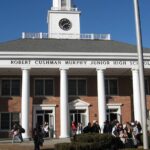Consider the Source
When professors go public, they frequently reveal biases that their students may not easily detect. Tufts historian Martin J. Sherwin had such a teachable moment recently when he co-authored a column which appeared in The Los Angeles Times.
Entitled “The Myths of Hiroshima,” it is an article Sherwin wrote with his writing partner Kai Bird. Bird himself is a former associate editor of the reliably left-wing Nation magazine.
Here’s how the authors address one of the “myths” about the blast that many credit with ending the Second World War: “…it was the Soviet Union’s entry into the Pacific War on Aug. 8, two days after the Hiroshima bombing that provided the final ‘shock’ that led to Japan’s capitulation.” Apart from confrontations on their own soil, the Soviets in World War II had an uncanny knack for showing up on the battlefield after the battle had been fought.
Bird and Sherwin’s main sources for their “myths” are statements made by the late J. Robert Oppenheimer, the scientist who worked on The Manhattan Project building the atom bomb. Oppenheimer lost his security clearance in the 1950s. Not without reason, the U. S. government suspected him of sharing trade secrets with the Soviets.
Oppenheimer’s FBI file runs to more than 9,000 pages. The letter that the U. S. Atomic Energy Commission (AEC) sent Oppenheimer in which the agency denied his security clearance makes for interesting reading.
“You stated in 1943 that you were not a communist but had probably belonged to every Communist-front organization on the west coast and had signed many petitions in which Communists were interested,” the letter read. “The Board concludes that this statement was made by Dr. Oppenheimer, and the Board had before it considerable evidence indicating Dr. Oppenheimer’s membership in, and association with, Communist-front organizations and activities on the west coast.”
“However, Dr. Oppenheimer, in his answer, claimed that the quotation was not true and that if he had said anything along the lines quoted, it was a half-jocular statement.” Harder to laugh off were his family ties: The AEC found out that his wife, brother and sister-in-law were either communists or bosom companions of same.
Oppenheimer himself traveled in Soviet-friendly company beyond his family circle. One companion, Steve Nelson, served with the Abraham Lincoln Brigade in Spain.
Although portrayed in most history texts as anti-Nazi, the archives of the Soviet Union showed it to be a wholly-owned and operated subsidiary of Stalin’s government which was bent on taking over Spain.
“Dr. Oppenheimer testified that Steve Nelson and his family visited his home on several occasions,” according to the AEC, the last being probably in 1942; that such visits lasted a few hours; and that he had met Steve Nelson through his (Oppenheimer’s) wife…”
As it happens, I met Steve Nelson too, in 1985. He was trying to raise money to send to the Soviet-backed Marxist Sandinista government of Nicaragua, allegedly to buy ambulances. For the record, I did not contribute.
Malcolm A. Kline is the executive director of Accuracy in Academia.




